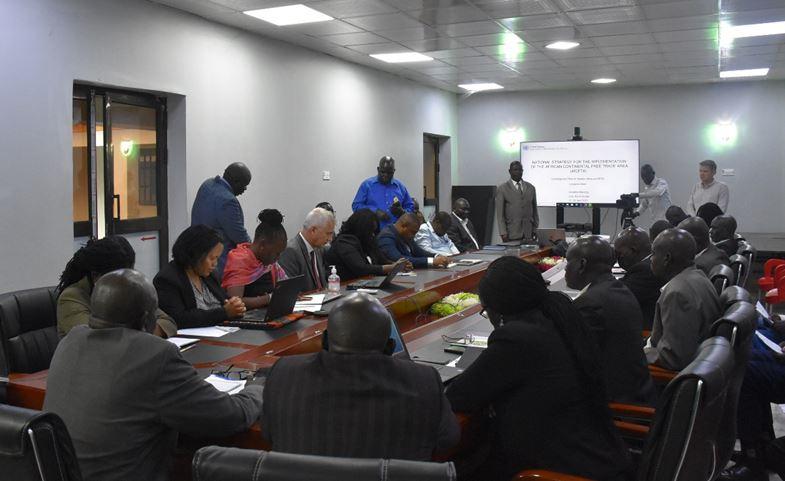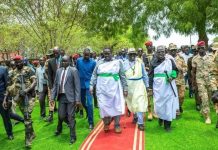Africa-Press – South-Sudan. The cost of food and basic essentials in South Sudan has increased by at least 15-20 per cent.
This is according to the revelation of the Director-General of External Trade, Stephen Doctor, who met with technocrats in the ministry of trade and industry on Thursday. Doctor read the undersecretary’s statement to a visiting delegation of the United Nations Economic Commission for Africa, led by the director of the subregional office for Eastern Africa.
The undersecretary stated that trade barriers restrict competitiveness and raise import costs. He attributed it to the country’s high cost of living.
“High trade taxes in South Sudan are currently one of the key reasons for the higher cost of living in our country. This is because trade taxes combat border trade barriers. Lowering trade barriers can significantly lower the cost of leaving for South Sudanese, “he said.
According to the statement, the visit of a UNECA trade team of experts to the country is to support the start of the development of the strategic road map for the implementation of the African Continental Free Trade Area (AfCTFA) and the strategic road map for accession to the World Trade Organization.
Participation in trade agreements promotes good governance for businesses that encounter greater certainty and clarity about their trading circumstances and are discouraged from adopting imprudent actions as a result of the rules included in these agreements that is capable of meeting good discipline in government.
According to the statement, South Sudan was granted observer status at the World Trade Organization in 2017 and this set the path for full membership in the organisation to be negotiated. It also signed the pan-African trade agreement, AfCFTA, in 2018.
“We are currently negotiating and trying to follow up the process of ratification,” the undersecretary stated in his statement.
Effective international trade engagement is a valuable tool for promoting economic growth, reducing poverty, improving social harmony, and stability.
Therefore, the undersecretary outlined why South Sudan wants to join the AfCTFA and the World Trade Organization (WTO), as well as why the country joined the East African Community (EAC) in 2016.
“We want to promote and strengthen the business sector in South Sudan,” he stated. ‘‘The private sector is crucial for job creation and moving South Sudan along the path to long-term prosperity.”
“One of the key pillars of South Sudan’s strategy to develop the private sector is through leveraging international trade to benefit our economy”.
Increased economic integration into the global economy leads to higher economic growth rates, whilst the benefits of trade vary depending on the peculiarities of each country.
Membership in international trade accords such as the African Continental Free Trade Area may weave a web of positive connections and interdependency around our country. This is likely to increase trust, reduce the cost of conflict, and hence lower economic and political risks.
A number of preconditions must be met in order to reap the benefits of external integration. These preconditions include advanced production capacity, skills, supporting institutions, and infrastructure.
As a result, the undersecretary emphasised that South Sudan must ensure that its integration into the global economy is based on unambiguous support for our country’s goals. A strategic integration should attempt to ensure that our country keeps the policy space it needs to achieve its goals.
Changing for better
“As a developing country, South Sudan is allowed special treatment under WTO rules. This gives South Sudan more flexibility in terms of setting policies to develop our industry. We seek to retain the possibility to strengthen and develop our economy prior to opening it to international trade” said the undersecretary.
Meanwhile, Mama Keita, the head of the UNECA sub-regional office for Eastern Africa, stated that the purpose of their trip to South Sudan was to analyse the situation, challenges, and context, as well as assess how the AfCTFA could be implemented in the country.
Ms. Keita remarked that Africa’s economies are vulnerable due to their architecture, and that there is a large reliance on the transportation of raw resources due to a lack of transformation.
ECA is a United Nations section tasked with assisting African countries in developing their national strategies and programs, as well as assisting them in promoting structural transformation in their economies.
“We think that these are sectors that can provide decent jobs that we want to bring about prosperity for our African people,” she noted.
For More News And Analysis About South-Sudan Follow Africa-Press






